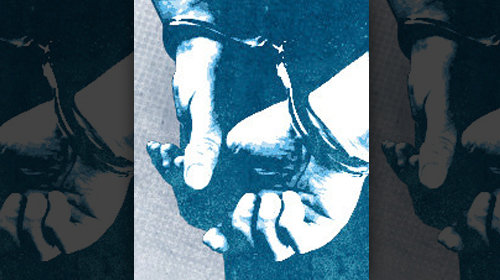
Today, the U.S. has the highest incarceration rate of any country in the world. With over 2.3 million men and women living behind bars, our imprisonment rate is the highest it's ever been in U.S. history. And yet, our criminal justice system has failed on every count: public safety, fairness and cost-effectiveness. Across the country, the criminal justice reform conversation is heating up. Each week, we feature our some of the most exciting and relevant news in overincarceration discourse that we've spotted from the previous week. Check back weekly for our top picks.
Since legislative sessions are well underway, we're starting to see real progress on bills that would, if passed, reduce the number of people in prison. Below are a few noteworthy bills:
- The Hawaii Senate passed SB 472, which would remove criminal penalties for adult possession of up to one ounce of marijuana. Unfortunately, the bill replaces prison time with a very steep fine: $1,000. Earlier this year, a poll of Hawaiian residents found that a majority of respondents (57 percent) favored legalizing marijuana.
- A Florida Senate committee passed SB 420, which would create a "safety valve" allowing judges to depart from mandatory minimums for prescription drug trafficking if the defendant meets certain criteria. SB 420 does not, however, mollify the strict mandatory minimum sentences that apply to many other drug offenses in Florida.
- Oregon is considering a HB 3194, which would eliminate some mandatory minimums and make a wide range of other reforms based upon these recommendations. However, the state is also considering an alternative bill, HB 3195, which would omit any reforms to mandatory sentencing.
- A bipartisan pair of cosponsors in Maine introduced a bill to legalize marijuana. In 2010, almost 3,000 people were arrested for marijuana possession in Maine.
- A California senator introduced a bill that would allow prosecutors to charge drug possession as a misdemeanor at their discretion.
- Georgia's House unanimously approved HB 242, would make comprehensive reforms to the way the state sentences juveniles. Here's a very long summary of an even longer bill.
Here are some other interesting pieces of news from the past week:
- The Supreme Court heard oral argument in Maryland v. King , in which they are asked to decide whether or not the Fourth Amendment allows states to collect and analyze DNA from people arrested for, but not convicted of, criminal offenses, solely for use in investigating other offenses for which there is no individualized suspicion. The New York Times ' Adam Liptak has coverage of the argument here .
- The Texas Court of Criminal Appeals agreed to hear the cases of nine defendants convicted of drug crimes based on the work of a crime lab worker in Houston who was found last year to have falsified test results. Jonathan Salvador was fired last year after it was discovered that he reported the contents of a bag of pills without testing them, instead substituting the results of a different test. Since then, investigators have found several more cases in which he falsified lab results. Mr. Salvador worked on 5,000 cases during his tenure with the Texas Dept. of Public Safety. See Grits for Breakfast for more.
- As many as 35,000 jail and prison bunks lay empty in Texas, but local communities are fighting to keep the state from shuttering some facilities.
- A New Mexico man was arrested for drunk driving in 2005 and placed in solitary confinement for 22 months in a county jail before even being tried. In the almost two years that Dona Ana county officials forgot about him, Stephen Slevin became malnourished, lost significant weight, developed bedsores, fungus and dental problems and was not aware of his situation or surroundings. A federal jury awarded Mr. Slevin $22 million in damages.
Learn more about overincarceration and other civil liberty issues: Sign up for breaking news alerts, follow us on Twitter, and like us on Facebook.
